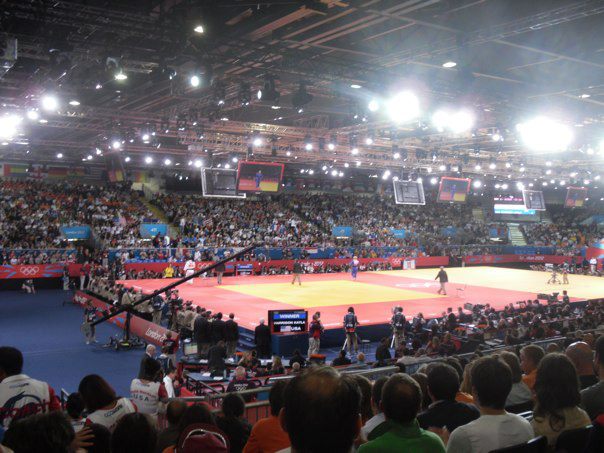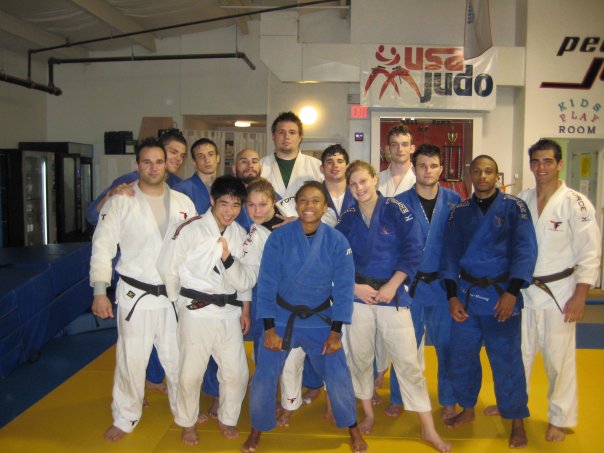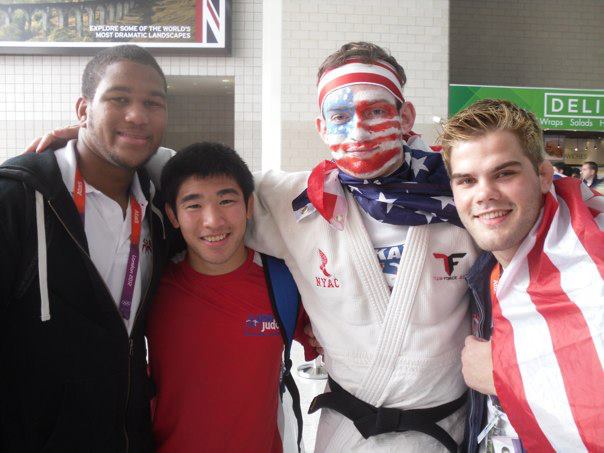|
It is four AM and everything is quiet. I am in a common area for the athletes dorm. There’s a television I haven’t bothered to turn on. I browse the web on my phone and make a phone call home. It won’t be a long conversation, after all it is an international call, but it helps me pass the time. I walk back over to the room I’m staying. Of all the things I wish I had pictures of, the intercoms I pass by are high on the list. The have red dots and look almost exactly like Hal from 2001 a Space Odyssey.
Continued here...
2 Comments
”Why did you want to climb Mount Everest?” “Because it’s there” George Mallory responding to a journalist “Great ambition and conquest without contribution is without significance.” Ethan Canin Mat side at the London Olympic Games When I was in the 7th grade my science teacher had a poster. The poster read “Shoot for the moon because even if you miss you will land among the stars.” Despite being corny and scientifically dubious when taken at face value the poster had a valid point about goal setting. That poster is an accurate description of my life events up to this point. I think I’ve spent the last five years processing and coming to understand the five years that preceded it. As part of processing these events, I want to tell you a story. This is a story about how in those first five years a mildly autistic kid from New England attempted the most difficult challenge in American martial arts: qualifying for the Olympic Games in the sport of judo. While tae kwon do and boxing carry with them real possibility of brain damage, and the work ethic of the wrestler is the stuff of legend, the qualification process for judo is a fascinating hell. When we compare the three Olympic martial arts, the grappling arts are empirically more difficult. This is not to take away from the incredible feats performed by Tae Kwon Do and boxing practicioners. If you’ve ever taken a round house kick or a right hook to the jaw and kept moving forward, you are something special. The fact is that neither of these carry with them the same energy expenditure, and the constant threat of joint damage, that grappling sports have. Just ask your friendly neighborhood MMA fighters which they find more tiring if you don’t believe me. Team FORCE before the 2008 Olympic Trials The only thing that makes the qualification process for judo more difficult than the process for wrestling has three syllables: scholarships. A young wrestler can receive an athletic scholarship, guaranteeing them an education. Wrestling in college is an expectation for those on the path to Olympic glory. While the NCAA system is in desperate need of reform, at least when a wrestler ends his thankless college career, which carried with it no possibility of million dollar contracts and a tiny fan base, they have a bachelors degree. They have a pathway to make money for their family. The United States sent five people to the 2012 Olympic Games. Only one had finished their undergraduate degree. It is likely they all carried with them thousands of dollars in debt. While judo finally began paying cash prizes at the highest levels, this money is not a guaranteed salary for a starving athlete. The demanding international competition schedule makes the standard brick and mortar undergraduate education almost impossible. There exists only three high level collegiate judo programs, with only one readily equipped as of this writing to produce Olympic medals. On the fourth day of competition in London, I called a friend who had competed in the Olympics in the past. This friend, a successful businessman with a doctorate, who would be the first tell you that an appearance at the Olympics could cost you more than you could ever pay back. Yet when I explained how despite knowing how bad a decision it would be to pursue the Olympics again, that I couldn’t help but want to go through all the pain again just for a chance, however small, that I’d make it, he responded in a voice just above a whisper: “Because you’ve seen it.” This is a story about how I tried to make the Olympic team, and the impact it had on my life. I promise, the story isn’t all gloom. In fact thanks to my family and some very smart friends, I was one of the lucky ones who despite not making it came out ahead. While there are ups and downs to this story, these were some of the best years of my young life. With friends at the 2012 Olympic Games This project is ongoing. While I have a rough outline below, I expect it will take some time to complete. My hope is to release a section a week until it is finished. If it isn’t hyperlinked, the section isn’t available yet. In general my intention is to follow the order below. As such I will be updating this post every week as new content is uploaded. Names have been changed through out the story where I’ve felt it necessary.
Chapters Part 1 Ticket to Tokyo Part 1 Ticket to Tokyo Part 2 Kangeiko How to hold a pencil The Kodokan Don’t trust the Nigerian Mafia Kyoto Coming Home How to eat an artichoke National Championships Part 2 In Transit Stories Part 1 Travis Scotland Merrimack Belize Collegiate Nationals Nick One Final Push The Email Part 3 In Transit Stories Part 2 The Announcement Ronda Athens Indianapolis Lowell Beijing Kyle US Open Part 4 2011 International Animal Behavior Society Chaos ensues Coming to terms Kayla Signing on the dotted line San Jose Marti One last try Preparing for London Ticket to London Day 1 Day 2 Day 3 Day 4 Ending an Athletic Career as an Athlete on the Spectrum |
AuthorChristopher Round is a doctoral candidate at George Mason University studying information technology and climate policy. Archives
July 2019
Categories |



 RSS Feed
RSS Feed
